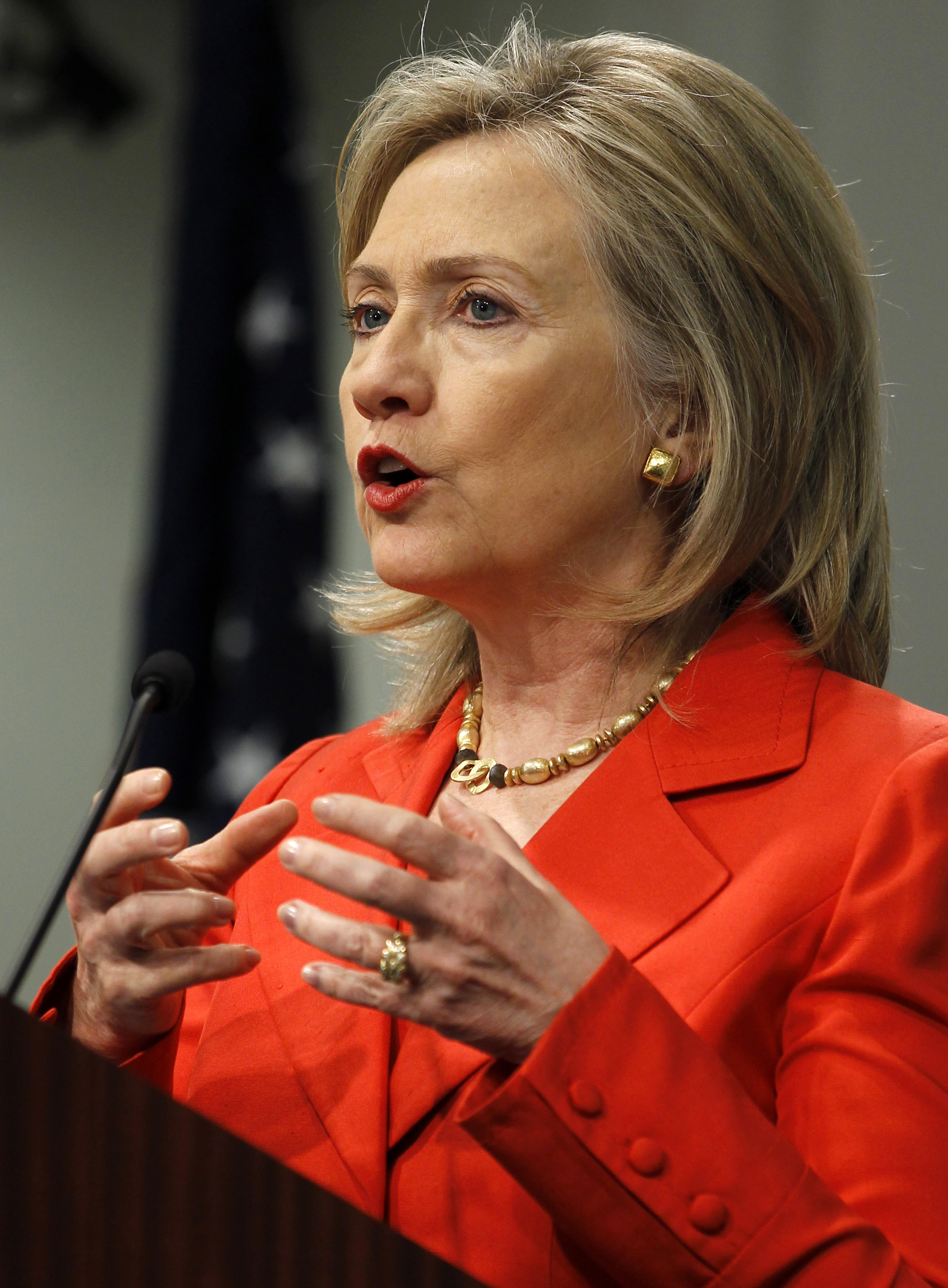
A version of this blog post by Resolve Executive Director Michael Poffenberger originally appeared on the Resolve blog, as a collaboration between Resolve, Enough, and Invisible Children.
The State Department announced on Monday that U.S. Secretary of State Hillary Clinton is embarking this week on a trip to Africa that includes a stop in Uganda, where she will meet with Ugandan President Yoweri Museveni. Though a number of issues will reportedly be on the agenda – such as the deteriorating state of democratic governance in the country and the situation in Somalia – the LRA will also likely be discussed. Resolve is joining with our partners at Enough Project and Invisible Children to share how we think the secretary can make the most of her visit.
Secretary Clinton’s visit to Uganda is coming at a critical juncture for international efforts to bring Joseph Kony to justice and see an end to LRA atrocities. The deployment of U.S. military advisors to the region last October, the launch of a joint United Nations and African Union strategy in June, and other measures now underway represent historic steps forward for this long-neglected crisis. But despite unprecedented international attention, little concrete progress has been made in keeping civilians safe from LRA attacks. In fact, LRA attacks on civilians escalated significantly in the first six months of 2012 relative to the latter half of 2011, and over 400,000 people remain displaced by LRA violence.
The reasons for the lack of progress are well documented. Tense relations among regional governments have prevented cooperation to address cross-border movements of LRA forces, creating de facto safe havens for the group in parts of Democratic Republic of Congo, northern Central African Republic, and South Darfur in Sudan. Regional military forces seeking to pursue Kony and protect civilians also lack many of the tools they need to succeed, such as helicopters and adequate aerial surveillance. And the absence of roads and communications infrastructure in the remote region impedes the flow of information, the delivery of humanitarian relief, and the deployment of forces to protect civilians where they are most in need.
Secretary Clinton’s visit provides a critical opportunity to jumpstart efforts to find solutions to these long-standing challenges. To make the most of her visit, she should do three things.
First, Secretary Clinton should ensure that President Museveni commits to step up Uganda’s efforts to protect civilians from LRA attacks and apprehend top LRA commanders. Most importantly, the Ugandan government needs to improve relations with Congo, CAR, and Sudan and work towards a joint regional strategy for denying LRA forces safe haven in remote areas of those countries. Secretary Clinton should encourage President Museveni to meet with the heads of state of LRA-affected countries and other donor nations on the sidelines of the U.N. General Assembly this September as one concrete step to put such a strategy into action. She should also express concern at allegations that Uganda is supporting the M23 rebellion in eastern Congo, which could cause further deterioration in relations with that country, and ensure that Ugandan troops deployed in neighboring countries continue to refrain from committing abuses against civilians.
Second, Secretary Clinton should press President Museveni to deploy more troops and helicopters to LRA-affected areas and establish a clear transitional justice process in Uganda that promotes LRA defections. Over the past three years, the number of Ugandan forces in the field has been cut in half, and Uganda simply does not have adequate troop or mobility capacity to pursue top commanders and effectively protect civilians from retaliatory attacks by the LRA. Furthermore, the gutting of Uganda’s Amnesty Act in May has created confusion about the legal status of LRA defectors and is now likely undermining efforts to increase defections from the group.
Finally, Secretary Clinton should take advantage of her trip to identify gaps in what the U.S. itself is doing to help stop the LRA. In doing so, she should meet with U.S. officials—both military and civilian—who have been working directly in LRA-affected areas to hear from them what more is needed.
In particular, she should consider how to address the glaring inefficiencies in the current package of U.S. logistical support to Ugandan troops that are hindering the Ugandans’ ability to react effectively to LRA threats against vulnerable communities. She should also examine how to loosen the severe travel restrictions placed on U.S. military advisers in the field, which constrain their ability to provide effective support to Ugandan military forces. Finally, Secretary Clinton should review U.S.-funded projects to improve communications infrastructure and early-warning programs in LRA-affected areas and ensure projects are being implemented swiftly and efficiently.
Photo: Secretary of State Hillary Clinton (AP)

